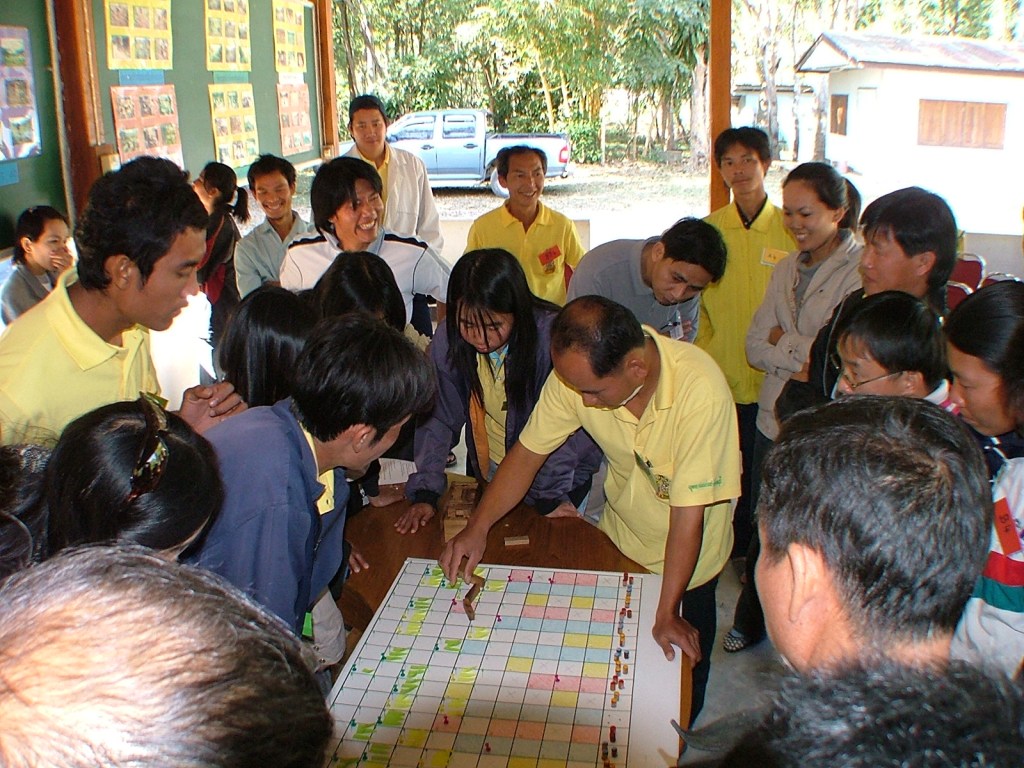
Participants engaged in a participatory process, playing a game to explore resource use in a National Park located in Northern Thailand.
By Lécuyer L., Balian, E., Butler, J.R.A., Barnaud, C., Calla S., Locatelli, B., Newig, J., Pettit, J., Pound, D., Quétier, F., Salvatori, V., Von Korff, Y., Young, J.C..
Our research explores the importance of understanding power dynamics in participatory process. Today, participatory processes are being advocated for in biodiversity conservation, with the assumption that having everyone around the table will suffice. However, as more people recognize that this may not be adequate due to varying power dynamics around the same table, there remains a lack of easily understandable propositions to analyze how power affects participatory processes. We propose a framework that deconstructs power, arguing that power is not just about control but also about the potential for positive change, exploring in which arenas people use power, how to they express power, in which space, and at what level.
Our research shows that when it comes to biodiversity, understanding power dynamics goes beyond just surface-level issues and disagreements among different groups of people, such as those concerned with wildlife. We found that the different ways power is expressed helps us see how people include nature and biodiversity in their goals. We also discovered that power operates at different levels, not just locally but also nationally and internationally, which is important in our interconnected world. Additionally, we identified two challenges in participatory processes for biodiversity: First, ensuring the voices of non-human beings are heard and, second, incorporating various knowledge systems into decision-making. Incorporating power into discussions about biodiversity means breaking down the usual conversations that only center on powerful people, their interests, and scientific knowledge. Instead, we need to develop new stories, knowledge, and ways of learning and acting that include a broader range of voices and perspectives.